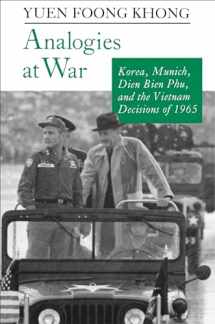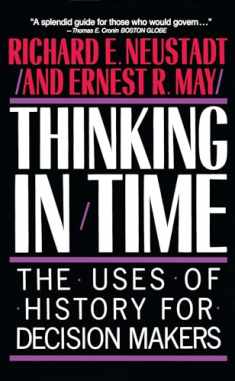
Analogies at War: Korea, Munich, Dien Bien Phu, and the Vietnam Decisions of 1965
Book details
Summary
Description
From World War I to Operation Desert Storm, American policymakers have repeatedly invoked the "lessons of history" as they contemplated taking their nation to war. Do these historical analogies actually shape policy, or are they primarily tools of political justification? Yuen Foong Khong argues that leaders use analogies not merely to justify policies but also to perform specific cognitive and information-processing tasks essential to political decision-making. Khong identifies what these tasks are and shows how they can be used to explain the U.S. decision to intervene in Vietnam. Relying on interviews with senior officials and on recently declassified documents, the author demonstrates with a precision not attained by previous studies that the three most important analogies of the Vietnam era--Korea, Munich, and Dien Bien Phu--can account for America's Vietnam choices. A special contribution is the author's use of cognitive social psychology to support his argument about how humans analogize and to explain why policymakers often use analogies poorly.


We would LOVE it if you could help us and other readers by reviewing the book
Book review





